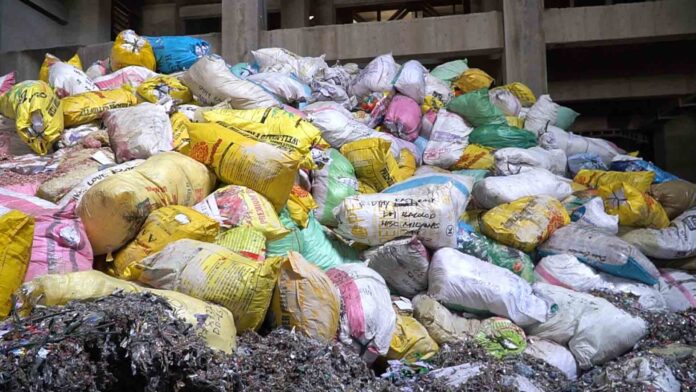Leading local cement manufacturing and distribution company Republic Cement has officially launched ecoloop, its resource recovery group that aims to help address the waste management crisis of the country.
Co-processing is the reuse or recovery of thermal and mineral properties of qualified waste materials while manufacturing cement in a single combined operation. Through co-processing and the use of waste, such as plastic or rice husk, as alternative fuels, Republic can manufacture cement with reduced dependence on fossil fuels, such as coal.
Co-processing continues to be a sustainable solution to the rise in the country’s waste generation, which remains a major challenge even with the Ecological Solid Waste Management Act (RA No. 9003) in place. The country has observed a steady increase in daily waste generated over the years, from over 37,000 tons in 2012 to 40,000 tons in 2016. In 2018, Metro Manila recorded an average of over 9,000 tons of waste per day. Whereas 85 percent of the total solid wastes were collected, 15 percent ended up in waterways and bodies of water.
An alternative waste management system is of utmost priority and as such, Republic has taken the opportunity to share the technology and innovation it has been using since the early 2000s for wider scope and greater nationwide impact. “Co-processing is a vital alternative that manufacturing industries can and should take toward the long-term goals of waste management as well as ultimately building our nation’s resilience against climate change challenges through sustainable practices,” says ecoloop Director Angela Edralin-Valencia.
With ecoloop, residual wastes can effectively be diverted away from landfills and waterways, and the plastic pollution crisis can also be addressed by capturing pre- and post-consumer waste in direct partnership with manufacturers including fast moving consumer goods (FMCG) companies as well as local government units (LGUs). At present, ecoloop counts more than 30 public and private partnerships across the country. “As long as these wastes are deemed acceptable for co-processing and acceptable under the guidelines issued by the Department of Environment and Natural Resources (DENR) through DAO 2010-6, co-processing should be prioritized over other unsustainable disposal methods that are more harmful to the environment in the long run,” adds Valencia.
While co-processing involves the application of heat to destroy waste, it is distinct from the traditional waste management practice of incineration, according to Valencia. ecoloop utilizes the cement kiln co-processing method, where emissions are contained and managed within the kiln and any ash produced fully integrated into the stable microstructure of clinker, a key ingredient of cement. On the other hand, some forms of incineration are purely for waste disposal without any energy or material recovery aspects. “There is a higher chance of noxious gases being released into the atmosphere and the ash byproduct usually still ends up in landfills,” explains Valencia.
Further, co-processing promotes the conservation of non-renewable energy sources and raw materials. The recovered heat content from the qualified wastes partially replaces the heat from traditional fossil fuels such as coal and petcoke. Recovered minerals similar to the chemical composition of sand and clay also replace raw materials used in cement production.
“In the waste management hierarchy, methods such as prevention, minimization, and recovery of materials through recycling and reusing are still preferred over co-processing. However, when these options are no longer available, co-processing remains preferred over unsustainable methods such as incineration, chemical and physical treatment of waste, and landfilling,” adds Valencia.
“Republic is proud to do its part in providing a viable waste management solution while continuously working towards a greener and more sustainable cement manufacturing process,” says Republic Cement CEO Nabil Francis. “Through this, we are confident that we are on the right path in moving towards a greener, stronger Republic.”





